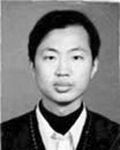Xiaohua Hu received the BSc degree in software from the Wuhan University, in 1985, the MEng degree in computer engineering from the Institute of Computing Technology, Chinese Academy of Science, in 1988, the MSc degree in computer science from the Simon Fraser University, Canada, in 1992, and the PhD degree in computer science from the University of Regina, Canada, in 1995. He is currently an associate professor and the founding director of the Data Mining and Bioinformatics Lab at the College of Information Science and Technology, Drexel University. He is also serving as the IEEE Computer Society Bioinformatics and Biomedicine Steering Committee chair, and was the IEEE Computational Intelligence Society Granular Computing Technical Committee chair from 2007 to 2009. He is a scientist, educator, and entrepreneur. He joined Drexel University in 2002, founded the International Journal of Data Mining and Bioinformatics, in 2006, and International Journal of Granular Computing, and Rough Sets and Intelligent Systems, in 2008. Earlier, he worked as a research scientist in the world-leading R&D centers such as Nortel Research Center, GTE Labs, and HP Labs. In 2001, he founded the DMW Software in Silicon Valley, California. His research ideas have been integrated into many commercial products and applications. His current research interests are in biomedical literature data mining, bioinformatics, text mining, semantic web mining and reasoning, rough set theory and application, information extraction, and information retrieval. He has published more than 180 peer-reviewed research papers in various journals, conferences, and books, such as various IEEE/ACM Transactions (IEEE/ACM TCBB, IEEE TFS, IEEE TDKE, IEEE TITB, IEEE Computer), JIS, KAIS, CI, DKE, IJBRA, SIG KDD, IEEE ICDM, IEEE ICDE, SIGIR, ACM CIKM, IEEE BIBM, IEEE CICBC, etc., co-edited 14 books/proceedings. He has received a few prestigious awards including the 2005 National Science Foundation (NSF) Career award, (the most prestigious award from NSF to young faculty in the USA), the best paper award at the 2007 International Conference on Artificial Intelligence, the best paper award at the 2004 IEEE Symposium on Computational Intelligence in Bioinformatics and Computational Biology, the 2007 IEEE Bioinformatics and Bioengineering Outstanding Contribution Award, the 2006 IEEE Granular Computing Outstanding Service Award, and the 2001 IEEE Data Mining Outstanding Service Award. His research projects are funded by the National Science Foundation (NSF), US Department of Education, and the PA Department of Health. He has obtained more than US $4.8 millions research grants in the past five years as PI or Co-PI. He is a senior member of the IEEE and the IEEE Computer Society.
Xiaohua Hu received the BSc degree in software from the Wuhan University, in 1985, the MEng degree in computer engineering from the Institute of Computing Technology, Chinese Academy of Science, in 1988, the MSc degree in computer science from the Simon Fraser University, Canada, in 1992, and the PhD degree in computer science from the University of Regina, Canada, in 1995. He is currently an associate professor and the founding director of the Data Mining and Bioinformatics Lab at the College of Information Science and Technology, Drexel University. He is also serving as the IEEE Computer Society Bioinformatics and Biomedicine Steering Committee chair, and was the IEEE Computational Intelligence Society Granular Computing Technical Committee chair from 2007 to 2009. He is a scientist, educator, and entrepreneur. He joined Drexel University in 2002, founded the International Journal of Data Mining and Bioinformatics, in 2006, and International Journal of Granular Computing, and Rough Sets and Intelligent Systems, in 2008. Earlier, he worked as a research scientist in the world-leading R&D centers such as Nortel Research Center, GTE Labs, and HP Labs. In 2001, he founded the DMW Software in Silicon Valley, California. His research ideas have been integrated into many commercial products and applications. His current research interests are in biomedical literature data mining, bioinformatics, text mining, semantic web mining and reasoning, rough set theory and application, information extraction, and information retrieval. He has published more than 180 peer-reviewed research papers in various journals, conferences, and books, such as various IEEE/ACM Transactions (IEEE/ACM TCBB, IEEE TFS, IEEE TDKE, IEEE TITB, IEEE Computer), JIS, KAIS, CI, DKE, IJBRA, SIG KDD, IEEE ICDM, IEEE ICDE, SIGIR, ACM CIKM, IEEE BIBM, IEEE CICBC, etc., co-edited 14 books/proceedings. He has received a few prestigious awards including the 2005 National Science Foundation (NSF) Career award, (the most prestigious award from NSF to young faculty in the USA), the best paper award at the 2007 International Conference on Artificial Intelligence, the best paper award at the 2004 IEEE Symposium on Computational Intelligence in Bioinformatics and Computational Biology, the 2007 IEEE Bioinformatics and Bioengineering Outstanding Contribution Award, the 2006 IEEE Granular Computing Outstanding Service Award, and the 2001 IEEE Data Mining Outstanding Service Award. His research projects are funded by the National Science Foundation (NSF), US Department of Education, and the PA Department of Health. He has obtained more than US $4.8 millions research grants in the past five years as PI or Co-PI. He is a senior member of the IEEE and the IEEE Computer Society.View more 




